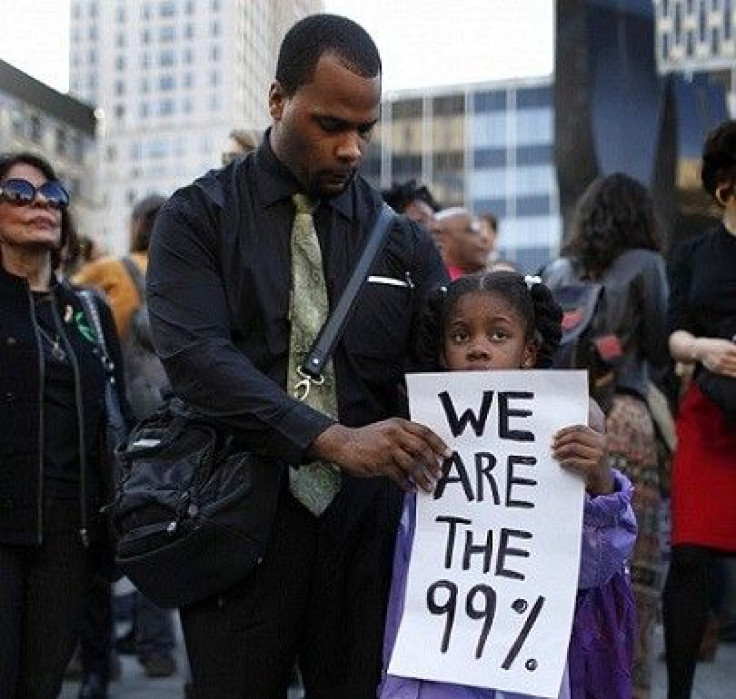Why Occupy Wall Street is Becoming the Left's 'Tea Party' Movement
OPINION

When the Occupy Wall Street movement began, with a small number of young activitists marching near Wall Street and sleeping a park in Lower Manhattan, it seemed like one of those things that was interesting for a moment but likely to soon go away.
Organizers called for 20,000 people to descend upon Wall Street to demonstrate against inequities caused by the financial machine they claim pilfers the system, is crushing the economy, and sucking life from the middle class for its own careless gain. At first glance, observers did assume, naturally, that the group was a Democratic party dream -- classic supporters of President Barack Obama protesting against Republican fat cats.
But it's not that way. It wasn't that way from the start three weeks ago. And now that many unions have joined the movement, and the movement has spread to other U.S. cities and locations throughout the world as offshoots of the so-called leaderless movement, we can see and understand that something much bigger is happening than just another protest, or another one-sided political debate.
No, the voices emerging from the Occupy Wall Street movement are finding a mark and gaining traction with something bigger than that. As Democratic Vice President Joe Biden said Thursday, the Occupy Wall Street movement has much in common with the Tea Party movement which changed American politics during the mid-term elections almost two years ago.
Let's be honest with one another, said Biden, speaking to an audience on camera at the Washington Ideas Forum Thursday. What is the core of that protest? The core is: The bargain has been breached. The core is the American people do not think the system is fair, or on the level. That is the core is what you're seeing with Wall Street.
There's a lot in common with the Tea Party, he said. The Tea Party started, why? TARP. They thought it was unfair.
Biden has a point. We didn't see it coming, but now it is clear. Occupy Wall Street is becoming to the left what the Tea Party is to the right.
If that seems like a scary thought thought to some considering how dividing the Tea Party has been at times, have faith. It's the heart of the American system -- the freedom for voice that allows citizens to rise up and speak when the establishment doesn't want them to. (Many Republicans, of course, would have preferred to gain power without the rise of the Tea Party, since it's so far proven internally disruptive at times.)
Change never happens easily, though. Now we see the same thing happen to the other side -- liberals rising up and speaking out against the establishment. They aren't happy with the American establishment in general -- Republicans or Democrats.
At this point I don't see any difference between George Bush and (Barack) Obama. The middle class is a lot worse than when Obama was elected, John Penley, an unemployed legal worker from Brooklyn who is part of the Occupy Wall Street Movement, told the Boston Globe.
In many respects, they are right. Obama promised big change for America's middle class but the divide between the middle class and wealth has only grown wider in the few years since the Great Recession of 2008 came to an end. Now, America is teetering toward another recession while its leaders in Washington have woefully tried to grapple their way through gridlock with few solutions and considerable finger-pointing.
The interesting part of this Occupy Wall Street movement will be whether the group collectively ever warms to Obama. The Tea Party, in the end, has largely aligned with the Republican party, though it's been a bit of a prickly ally. Many with Occupy Wall Street point an aggressive finger at both parties.
Obama should have done more, they say. Republicans should have done more, they say.
And many Americans who didn't seemingly fit with the Occupy Wall Street movement when it began rather humbly weeks ago are taking note. Many agree. More are joining in, coming from all walks of life in the American spectrum. It's become a movement -- the left's version of the Tea Party.
They've had enough, and they don't want to sit back and take it any more.
© Copyright IBTimes 2024. All rights reserved.











